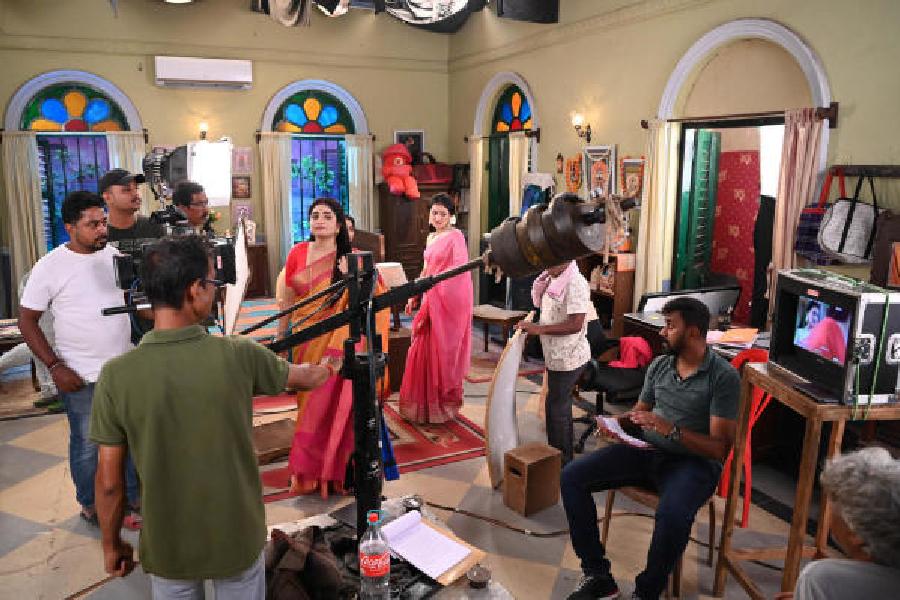Calcutta: Lights, camera, relief.
It was business as usual at Tollygunge’s NT1 studio around 1pm on Wednesday. Horogouri Pice Hotel, a popular TV soap, was being shot on one of the floors. Another floor saw the construction of a set.
A similar hum played out at Indrapuri and Technicians’ studios.
The Tollygunge studios came back to life as shooting resumed after four days on Wednesday.
“More than anything else, we are relieved. We want to thank the chief minister,” said Saugata Nandi, owner of the studio.
A stand-off between directors and technicians had stalled shooting at Tollygunge. Eminent filmmakers were seen taking up the cudgels for the “sake of the industry”.
It is no secret that daily soaps, not films, are the backbone of the Bengali entertainment industry. Around 35 mega-serials were being shot on the Tollygunge studio floors when the stand-off had brought everything to a grinding halt. Four major channels and a couple of smaller channels play these soaps.
Compared to soaps, only a handful of films were being shot, said sources in the industry. Films are mostly shot at real locations instead of studios. Actor-MP Dev’s upcoming film Khadaan was one of the films whose shooting had been stalled. “We are extremely happy. Shoot stoppage affects everybody. We directly work with 80 to 100 people for each serial. Indirectly, the number is around 150,” said Sani Ghose Ray, the secretary of the Welfare Association of Television Producers, and producer of soaps like Shubho Bibaho and Akash Kusum.
Directly involved people means everyone from the director to the cast to the spot boy. Vendors — in charge of catering to carpool — are among those indirectly involved. “The stalling of the shoot of soaps spells doom for thousands of families. For most people working in soaps, no work means no pay,” said the owner of a studio.
The payment structure is varied. A small-time actor who has four soaps in her kitty said she earned ₹1,000 for a 10-hour shift. A man in charge of arranging lights earned ₹600 a day.
Back to the wall
A director was banned for three months by the Federation of Cine Technicians and Workers of Eastern India for allegedly violating norms by shooting an OTT film in Bangladesh without intimating the federation and using technicians from Dhaka.
The directors’ guild, also part of the federation, revoked the ban. But the federation dug its heels in and boycotted the director, prompting a cease-work call by the directors.
The impasse ended after intervention by chief minister Mamata Banerjee on Tuesday.
The end came with a resolution to resume shooting and an assertion that the technicians’ federation did not have the authority to ban anyone.
Filmmakers, soap directors and producers said that they are well aware of the impact that locked studios can have on livelihoods. But it was imperative to stand up to the “autocracy” of the federation, they said.
None of those who shared their grievances with this newspaper was willing to come on record, another pointer to the clout wielded by the federation, presided by Trinamool Congress leader Swarup Biswas.











